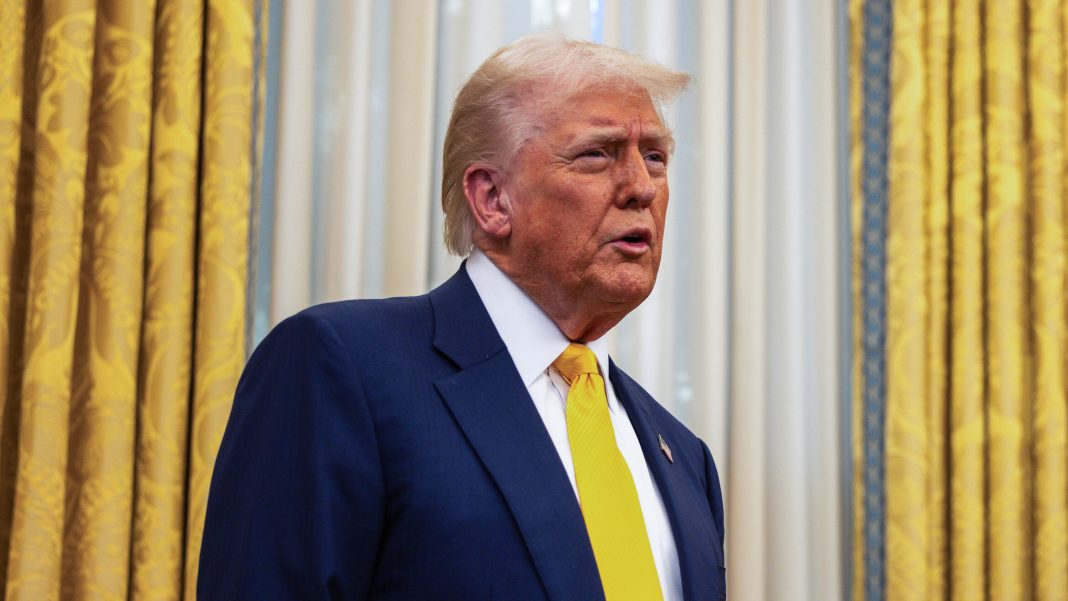U.S. President Donald Trump has announced new visa measures aimed at restricting foreign journalists, students, and cultural exchange visitors. The proposal dramatically reduces the visa time international reporters can stay in America, creating a direct impact on how global media operates in the country.
A Major Cut in Journalists’ Visa Duration
Foreign correspondents using the I Visa could stay in the United States for up to five years, but Trump’s proposed rule cuts this period to just 240 days, or about eight months.
For journalists from China, the period would be even shorter. Their visas would last only 90 days, forcing them to reapply for extensions more frequently. The Department of Homeland Security (DHS) said this system would allow them to vet and monitor foreign reporters more strictly.
US Moves to ‘Crush’ Chinese Student Visas—National Security at Risk
The DHS also stated that foreign journalists could apply for extensions, but the maximum length of stay would still remain far below the earlier five-year allowance. Extensions would be capped at another eight months, and only for the length of their specific assignment.
Targeting More Than Just the Press with Visa Rules
The move does not stop with journalists. International students and cultural exchange workers will also face shorter stays in the U.S. Under the proposed rule, F Visas (student visas) and J Visas (cultural exchange visas) will be restricted to a maximum of four years.
According to U.S. government data, the impact of this change could be wide-reaching. In 2024, there were 1.6 million international students, 355,000 exchange visitors, and 13,000 members of the foreign media in the United States.
🇺🇸 Visa trap alert — US embassy warns Indians: “Don’t confuse expiry date with I-94 deadline
The administration argued that the changes would prevent what it called “visa abuse.” A DHS spokesperson claimed that for too long, foreign students and other visitors had been allowed to remain in the country “virtually indefinitely,” which they said created security risks, increased taxpayer costs, and harmed U.S. citizens.
Critics, however, see the new plan differently. Many have described it as an attempt to weaken press freedom. They point to past actions, such as Trump’s attempt to slash $1.1 billion from public broadcasting funds and the White House once barring the Associated Press from a briefing because it refused to rename the “Gulf of Mexico” as the “Gulf of America.”
Reactions From the Media and Officials
The announcement sent shockwaves through Washington’s foreign press corps. Many international reporters are based at the White House or on Capitol Hill, where they cover the U.S. administration and Congress.
Journalists expressed alarm at the proposed rules. One correspondent described the new limits as “brutal,” while others labeled them “undemocratic.” The uncertainty of shorter visas could make it much harder for international media organizations to keep reporters stationed in America.
Media organizations argue that forcing journalists to reapply for visas so frequently will disrupt their reporting and create instability in news coverage. The possibility of sudden departures due to visa expiration could prevent foreign audiences from receiving consistent coverage of American politics and society.
Tibetan Access Triggers Strong US Visa Sanctions on Chinese Officials
A spokesperson for the U.S. State Department, however, defended the proposal. They said the Trump administration was committed to protecting national security and public safety by ensuring stricter oversight of all visa categories.
The regulation is not entirely new. It mirrors a similar proposal introduced in 2020, near the end of Trump’s first presidential term. The plan allows a 30-day public comment period, giving citizens and organizations an opportunity to provide feedback.
Despite official explanations, the impact on foreign media is undeniable. With a reduced stay of 240 days instead of five years, international journalists face major challenges in continuing their work. The result is a new obstacle for the free flow of information between America and the rest of the world.

